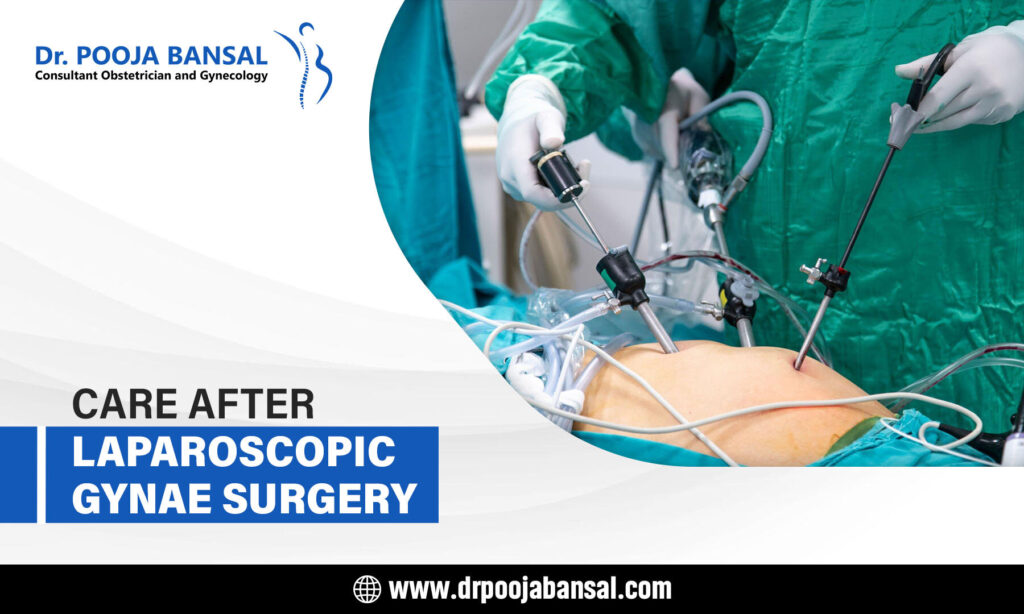After undergoing laparoscopic gynecological surgery, it’s essential to follow proper care and guidelines to ensure a smooth recovery and reduce the risk of complications. Here are some general
post-operative care instructions :
Follow the Surgeon’s Instructions –
Your surgeon will provide specific post-operative care instructions based on your individual condition and the type of surgery you had. Always follow their guidance meticulously.
Pain Management –
You may experience some pain and discomfort after the surgery. Take the prescribed pain medications as directed by your doctor. If you have concerns about the medication or experience any unusual side effects, inform your healthcare provider immediately.
Rest and Activity –
Allow yourself plenty of time to rest and recover. Avoid strenuous activities and heavy lifting for the period recommended by your doctor, typically a few weeks. Gradually increase your activity levels as you feel comfortable.
Incision Care –
Keep the incision areas clean and dry. Follow your surgeon’s instructions on how to care for the incisions, including changing dressings or bandages as needed.
Diet and Hydration –
Maintain a balanced diet and drink plenty of fluids to promote healing and prevent constipation, which can be a common side effect of surgery and anesthesia.
Follow-Up Appointments –
Attend all scheduled follow-up appointments with your surgeon. These visits are crucial to monitor your healing progress and address any concerns.
Avoid Infections –
To reduce the risk of infection, avoid submerging the incisions in water (e.g., swimming, baths) until your surgeon gives the green light. Also, keep an eye out for any signs of infection, such as increased redness, swelling, warmth, pus, or fever, and notify your healthcare provider if you notice any of these symptoms.
Birth Control and Sexual Activity –
If your surgery involved reproductive organs, discuss with your doctor when it’s safe to resume sexual activity and what contraceptive methods are suitable for you during your recovery.
Medication Management –
Continue taking any prescribed medications as directed by your doctor. If you’re on birth control, discuss with your healthcare provider when it’s safe to resume using it after surgery.
Emotional Support –
Surgery and recovery can be emotionally challenging. Surround yourself with a supportive network of family and friends, and don’t hesitate to talk to a mental health professional if you need help coping with emotions during this time.
Remember that every individual’s recovery is different, so listen to your body and don’t push yourself too hard. If you have any concerns or questions during your recovery period, reach out to your healthcare provider promptly.

